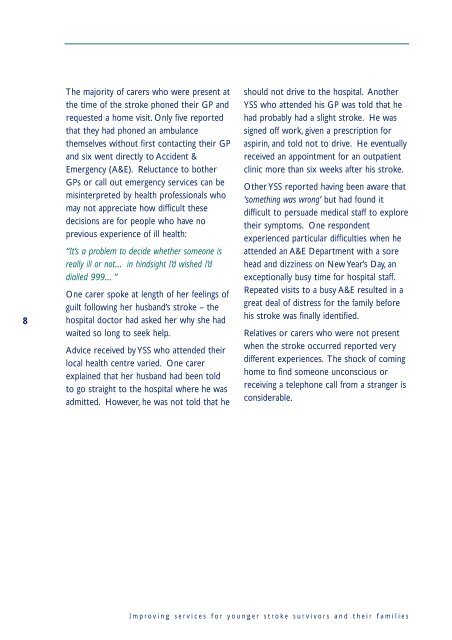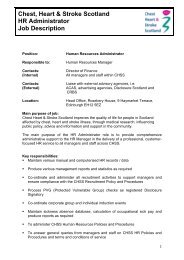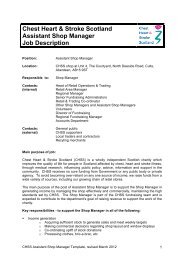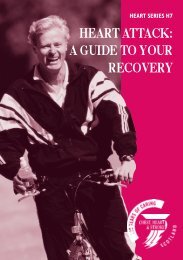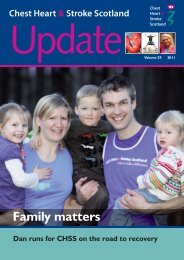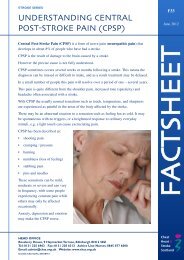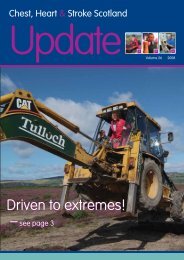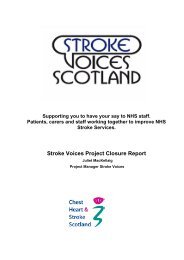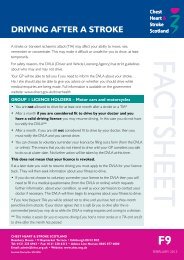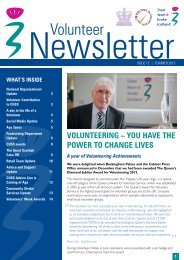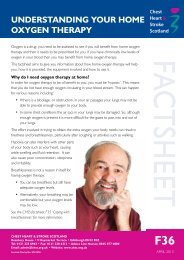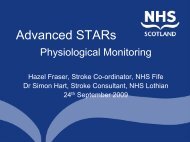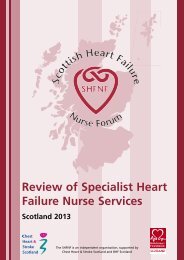Improving services for younger stroke survivors and their families
Improving services for younger stroke survivors and their families
Improving services for younger stroke survivors and their families
- No tags were found...
Create successful ePaper yourself
Turn your PDF publications into a flip-book with our unique Google optimized e-Paper software.
8The majority of carers who were present atthe time of the <strong>stroke</strong> phoned <strong>their</strong> GP <strong>and</strong>requested a home visit. Only five reportedthat they had phoned an ambulancethemselves without first contacting <strong>their</strong> GP<strong>and</strong> six went directly to Accident &Emergency (A&E). Reluctance to botherGPs or call out emergency <strong>services</strong> can bemisinterpreted by health professionals whomay not appreciate how difficult thesedecisions are <strong>for</strong> people who have noprevious experience of ill health:“It’s a problem to decide whether someone isreally ill or not… in hindsight I’d wished I’ddialled 999…”One carer spoke at length of her feelings ofguilt following her husb<strong>and</strong>’s <strong>stroke</strong> – thehospital doctor had asked her why she hadwaited so long to seek help.Advice received by YSS who attended <strong>their</strong>local health centre varied. One carerexplained that her husb<strong>and</strong> had been toldto go straight to the hospital where he wasadmitted. However, he was not told that heshould not drive to the hospital. AnotherYSS who attended his GP was told that hehad probably had a slight <strong>stroke</strong>. He wassigned off work, given a prescription <strong>for</strong>aspirin, <strong>and</strong> told not to drive. He eventuallyreceived an appointment <strong>for</strong> an outpatientclinic more than six weeks after his <strong>stroke</strong>.Other YSS reported having been aware that‘something was wrong’ but had found itdifficult to persuade medical staff to explore<strong>their</strong> symptoms. One respondentexperienced particular difficulties when heattended an A&E Department with a sorehead <strong>and</strong> dizziness on New Year’s Day, anexceptionally busy time <strong>for</strong> hospital staff.Repeated visits to a busy A&E resulted in agreat deal of distress <strong>for</strong> the family be<strong>for</strong>ehis <strong>stroke</strong> was finally identified.Relatives or carers who were not presentwhen the <strong>stroke</strong> occurred reported verydifferent experiences. The shock of cominghome to find someone unconscious orreceiving a telephone call from a stranger isconsiderable.<strong>Improving</strong> <strong>services</strong> <strong>for</strong> <strong>younger</strong> <strong>stroke</strong> <strong>survivors</strong> <strong>and</strong> <strong>their</strong> <strong>families</strong>


